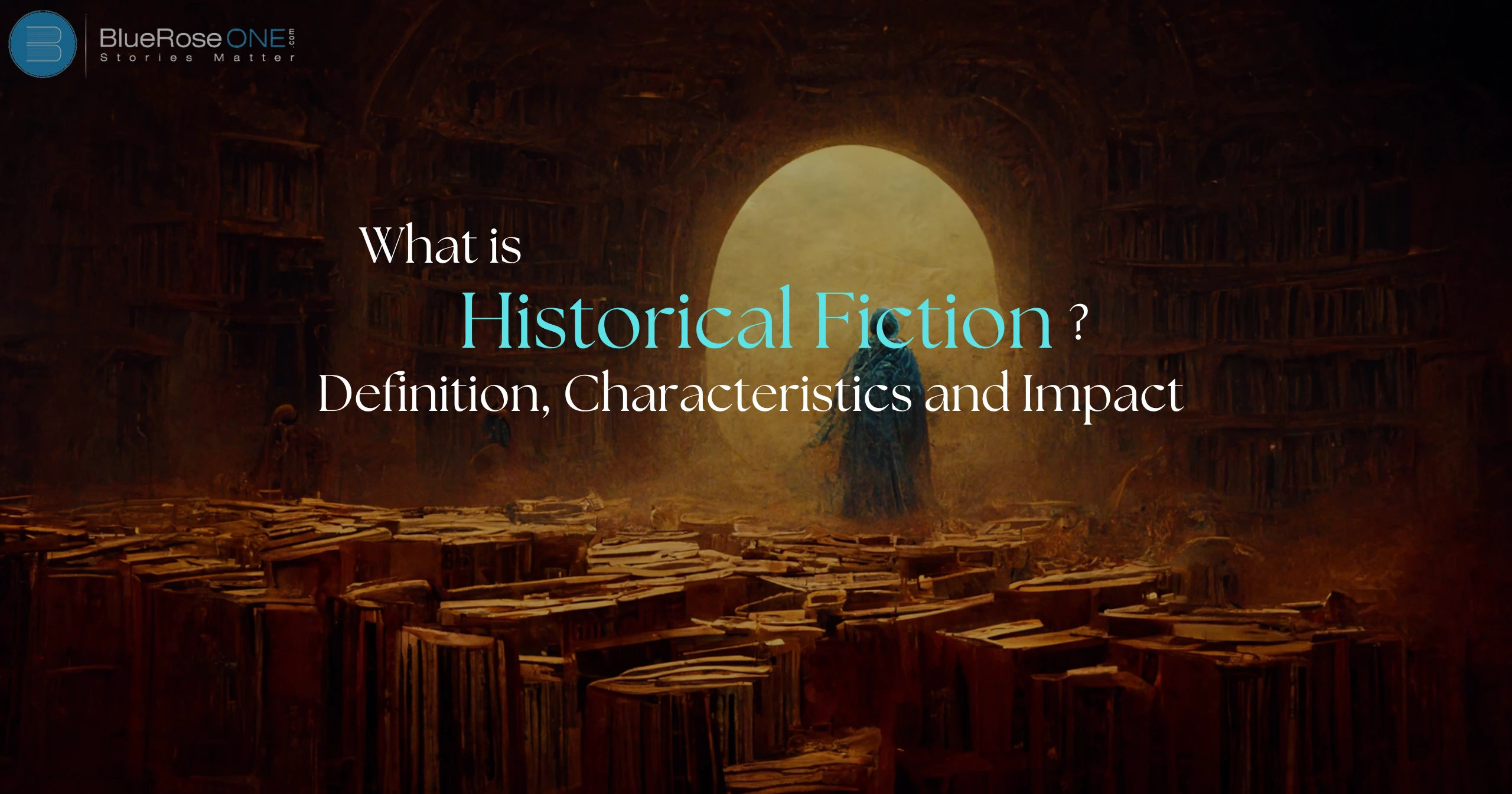What is Historical Fiction?
The genre of historical fiction blends actual people, places, and events with narrative storytelling. It transports readers through time, giving them a peek into the past and creating a creative and imaginative tapestry. But what precisely qualifies as historical fiction in a story? Let’s explore this intriguing genre in more detail!
A literary genre known as historical fiction is one in which the story is set in an earlier age. The events portrayed don’t have to be historical occurrences; they might be made up or real. The attitudes, social mores, and historical events of the era these tales depict are intended to be reflected in them.
You may also like: What is Situational Irony? Definition, Examples and Tips for Writers
Characteristics of Historical Fiction
Accurate Historical Detail
Precise historical details are essential to establishing a realistic setting in historical fiction. In order to make the story seem plausible, writers need to thoroughly study the historical period, including social mores, fashion, technology, and significant events.
Even though the story and characters are made up, the historical setting ought to be accurate. The overall experience of historical fiction is improved by this attention to accuracy, which enables readers to fully immerse themselves in the past.
Strong Character Development
In historical fiction, strong character development is crucial because it fosters a sense of historical authenticity for readers.
Writers craft complex characters that capture the ideals, hardships, and feelings of their era. Readers are able to comprehend historical circumstances and the difficulties people in that era experienced thanks to this richness.
Historical fiction is made more interesting and approachable by giving people real-world characteristics and motivations. This makes learning about the past entertaining and educational.
Emotional Truth
Emotional truth is a fundamental aspect of historical fiction. Readers are emotionally affected by the characters’ feelings and experiences, especially if the events and settings are frequently drawn from actual historical occurrences.
In order to let readers relate to the pleasures, sorrows, and anxieties of historical figures, authors try to portray their emotions and motivations. In historical fiction, this emotional realism enhances the reader’s comprehension of historical circumstances and the human experience by making the story accessible.
You may also read: Character Backstory: Definition, Examples and Much More
The Purpose of Historical Fiction
Educating Readers
Teaching readers about various historical eras and events is one of the main goals of historical fiction. Writers assist readers in comprehending the intricacies of the past by incorporating factual historical information into captivating narratives.
This genre makes history come to life, letting readers share in the feelings and hardships of people from many historical periods. Historical fiction provides deeper understanding of historical events and their influence on the modern world in addition to providing entertainment through meticulously researched storylines.
Connecting Past and Present
Historical fiction must make connections between the past and the present. With the help of this genre, readers can experience historical events and connect them to current problems.
Authors craft stories that show how history affects our values and way of life now by fusing historical details with creative storytelling.
Through enhanced comprehension of the intricacies of human experiences across time, readers can develop empathy and wisdom. In the end, historical fiction acts as a link between the reality of today and the lessons learnt from the past.
Exploring Identity
By transporting readers to other eras and civilisations, historical fiction enables them to investigate identity.
By use of meticulously researched stories, writers portray the challenges, victories, and lives of individuals influenced by their respective historical settings.
This genre invites readers to consider how history affects modern living in addition to highlighting the intricacies of individual and societal identity. Readers might better comprehend their own identities in relation to the past by developing emotional connections with historical fiction characters.
You may also like: Freytag Pyramid: Definition, Struture and Examples
Popular Historical Fiction Novels
Research is Key
When writing historical fiction, research is essential. It aids writers in producing authentic and convincing historical settings, people, and events.
Since this genre frequently combines reality and fantasy, careful investigation guarantees that specifics, such as attire, vocabulary, and societal mores, are accurate. Well-researched historical fiction connects readers to the past by providing depth that they enjoy.
Writers can create engrossing narratives that connect with readers and deepen their awareness of various eras by basing stories in historical events.
Balancing Fact and Fiction
It can be difficult for authors of historical fiction to strike a balance between reality and fiction. This genre combines creative storytelling with historically accurate settings, characters, and events.
In order to authentically portray the era, writers must undertake extensive research while retaining the creative license to create unique characters and storylines. Finding this equilibrium contributes to the development of a realistic and captivating story.
Authors are able to take readers to new places and provide historical perspectives by incorporating real-life information into their fiction.
Creating Authentic Characters
In historical fiction, believable individuals are crucial to drawing readers in and giving the past life. Writers should do extensive study on the era, covering language, social mores, and significant historical events, in order to do this.
This knowledge aids in the creation of characters that capture the attitudes, hardships, and way of life of their time. Adding historical individuals from real life to fictional ones can also add depth and authenticity.
Authors may craft gripping stories that appeal to readers who are interested in historical fiction by providing their characters with a solid foundation of thoroughly investigated details.
You may also read: What is Plot Structure? Definition with Examples
The Impact of Historical Fiction on Readers
Fostering Empathy
One of the major effects that historical fiction has on readers is that it fosters empathy. This genre gives readers the opportunity to see the world through the perspectives of a variety of characters by transporting them to many eras and cultures.
Because they can relate to these people’ hardships and victories on an emotional level, readers are better able to comprehend difficult societal concerns and historical events.
Historical fiction is an effective technique for fostering empathy because of this emotional engagement, which not only broadens their understanding of history but also fosters a more sympathetic worldview.
Inspiring Curiosity
One of the most important effects of historical fiction on readers is to pique their curiosity.
These tales take readers to new eras and locations, piquing their curiosity in historical events. Historical fiction entices readers to learn more about history outside of textbooks by incorporating historical events and figures into imaginative stories.
Historical fiction is a useful tool for encouraging interest in history since it frequently sparks deeper conversations about societal concerns, society, and human behavior.
You may also read: What is External Conflict? Definition, Examples and Writing Tips
Conclusion
Historical fiction is a vibrant and multifaceted genre that brings the past to life through captivating narratives. By blending fact with imagination, authors invite readers to explore different eras and experience the complexities of history in a personal way.
Whether you’re a seasoned reader of historical fiction or just dipping your toes into the genre, there’s always something new to discover in the rich tapestry of human experience.
Frequently Asked Questions
A book is considered historical fiction if its plot takes place in a past time period, incorporating real historical events and details while often featuring fictional characters or stories.
Authors typically conduct extensive research on the time period, including studying historical events, cultural practices, and social norms to create an authentic backdrop for their stories.
Yes, historical fiction can be based on true events, often using real historical figures as characters or settings to tell a fictional story that reflects the era’s realities.
Common themes include identity, resilience, love, war, social change, and the impact of historical events on individuals and communities.
Reading historical fiction can enhance empathy, spark curiosity about history, and provide a deeper understanding of how past events shape contemporary society.















